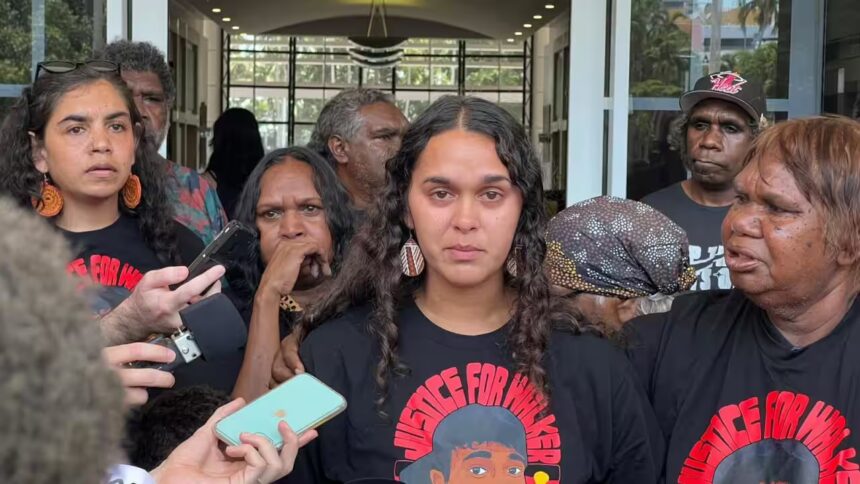Fresh Tragedy in Yuendumu: Another Young Aboriginal Man Dies in NT Police Custody
Just weeks before the community of Yuendumu was to hear the inquest findings into Kumanjayi Walker’s death, the town has again been devastated. Another young Aboriginal man—24 years old, Warlpiri, and disabled—has died after being restrained by police in Alice Springs. The man lost consciousness during the restraint and later died in hospital.
A grandfather’s anguish and demand for justice
“I am angry and frustrated that yet another one of our young men has lost his life at the hands of the police,” said his grandfather, Warlpiri elder Ned Jampijinpa Hargraves. “We are demanding answers and justice.” The family is requesting immediate access to all available footage, including police body cams and CCTV, to understand what happened to their loved one.
Community grief echoes across generations
“Thinking of everyone back home in sorry business, especially our young men. I am so lost for words … I am just so angry,” wrote Samara Fernandez-Brown, cousin of Kumanjayi Walker, expressing heartbreak on Instagram. The pain reverberates deeply in a community that has faced far too many losses.
Police account and confrontation timeline
Two NT police officers in plain clothes were reportedly alerted to an altercation involving the 24-year-old and a supermarket security guard. NT Police Assistant Commissioner Travis Wurst stated the man was “placing items down the front of his clothing” and became aggressive when confronted. Officers restrained him to the ground, where he reportedly lost consciousness.
A life lost despite attempted CPR
The man was given CPR and transported to Alice Springs Hospital, where he was pronounced dead shortly after. However, Hargraves criticized police narratives that portrayed his grandson as a criminal before a full investigation. “He was a very vulnerable young man,” Hargraves stressed. “He had disabilities and was living in supported accommodation.”
Legal and community leaders speak out
Debbie Kilroy, criminal solicitor and activist, was in Alice Springs at the time. “We have a young man who is hungry, who is on NDIS, who is under the guardianship of this government,” she said. “Even if you go with the narrative that he was aggressive or stealing, a person still does not deserve to die on a cold, tiled floor.”
Government avoids specifics, urges patience
The NT government issued a brief statement offering condolences but avoided addressing whether the man was under state guardianship. They emphasized the need for space to allow proper investigations. Police confirmed detectives from the major crime unit will lead the inquiry on behalf of the coroner.
Demands for independent inquiry intensify
Kilroy, however, rejected this setup: “Police cannot be allowed to investigate police. That is not independent. It is a conflict of interest.” Calls for external, transparent inquiries are growing as the justice system faces heightened scrutiny.
Systemic concerns voiced amid mounting pressure
Theresa Roe, chair of the North Australia Aboriginal Justice Agency, warned more tragedies may follow due to the NT government’s harsh law-and-order measures. “The justice system is in crisis,” she said. “Now we’ve got a death in custody, and you know, there may be more to come.”
Coroner’s findings loom over fresh loss
The timing adds to the tension. The NT coroner is expected to deliver findings from the two-and-a-half-year inquest into Kumanjayi Walker’s 2019 police shooting on June 10 in Yuendumu. That investigation had already exposed systemic racism in the NT police force, prompting apologies and promises of reform.
Broken promises and lingering distrust
Despite promises of transformation—including the appointment of Arrernte lawyer Leanne Liddle to lead reform—Indigenous communities remain skeptical. The repeated deaths of Aboriginal people in custody continue to haunt Australia, especially in regions like Yuendumu where trust in institutions is deeply fractured.
Grief, resistance, and a call for change
The Warlpiri community is again left to mourn, demand accountability, and brace themselves against a justice system that has too often failed them. This tragic loss is not just personal but deeply political, reflecting broader failures in care, protection, and justice for Aboriginal people.






